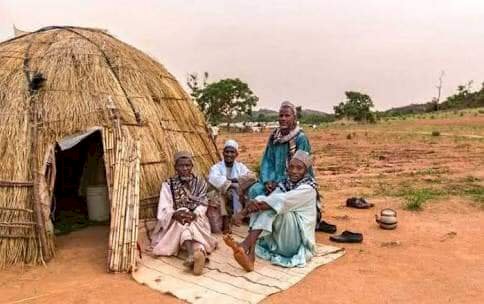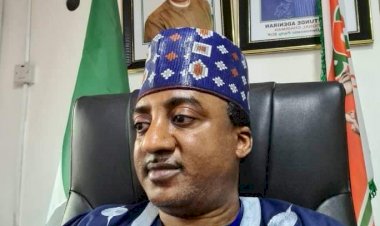FULANI, VILLAINS OR VICTIMS - 7

MY FINAL WORDS
In this final part our attention will be on the Fulani that were unaffected by the Jihad; and who move from territory to territory, at will, throughout West Africa, from the upper reaches of the Senegal river to lake Chad.
These Fulani have no international passports and therefore respect no borders though they are undoubtedly the largest migratory group of people in the world, numbering around 35 million. Many of them are living in Nigeria. At the same time, they are one of the world’s biggest unengaged tribal groups. By ‘unengaged’ I mean they do not undertake in any any handiwork nor do they acquire.
They have a huge youthful population who can do just ‘anything’. Under Hausa rulers the nomads were only exploited, the Jihad movements only used them in warfare, a thing they know best. Colonial authorities did not care for them, the first republic administration only extracted cattle tax from them and so were the military. Even today under the successive civilian administrations all over West Africa, the fortunes of the Fulani nomads did not change.
In the West African nations within which they roam, governments have refused to integrate them into the society. They only stay in town or a village when ‘na’i mabbe timmi’
The rest of us have been so unconcerned with the plight of the Fulani nomads that even today no District Head or Emir in any part of West Africa would give them land and a certificate of occupancy that would give them legal title to the land. In fact no matter how long they stay in a particular place, the District Head or the Emir can sell the land to ‘Dan Boko’ or a rich man who would fence the land and ask the nomads to leave. They have been a people on the go all the time.
The government does not build schools for them to educate their children either in Islamiya or Boko, no Governor builds hospitals for their health needs, they drink water from streams, they live in ‘Bukkaji’ often overcrowded with their children and wives. In fact I was told that the nomadic Fulani constitute the highest number of illiterates on the planet.
I am pleased to say that by the votes of the people of Fufore/Song federal constituency in Nigeria’s North East state of Adamawa, I was a member of the ECOWAS parliament from 2015-2019. This was what afforded me the opportunity to set foot on most of the territories covered by the Fulani jihads in this subregion. I have made a lot of Fulani and non Fulani friends in the West African region, ranging from my colleagues in the parliament, security experts and policy makers with whom I often communicate. About the Fulani nomads, the observation is the same everywhere one goes.
Since the beginning of the 1960s people all over West Africa have continuously been experiencing violent clashes with the nomads. This is because of an expansion of agriculturist population and cultivated land at the expense of pasturelands, deteriorating environmental conditions, desertification and soil degradation, population growth, breakdown in traditional conflict resolution mechanisms of land and water disputes.
Initially majority of the farmer-herder clashes have occurred between these Fulani herdsmen (majority of whom are nominal Muslims) and Christian farmers, exacerbating ethnoreligious hostilities. When all these were happening, some of us living away from the clash centres look the other way or support our ethnic or religious brothers in the divide. We the elites never bothered.
Now the worst is happening. The herders we ignored to their fait for far too long, the opportunity we refused to give them to also own land as we do so that they too can be sedentary and educate their children as our children; our refusal to give them opportunity to own land as we do are what brought us to where we are. This is because these our failures have met a proliferation of small arms and crime in all rural areas.
Now all over Sahel region of West Africa from Guinea to Senegal, Mali, Burkina Faso, Niger and Nigeria; people can not sleep with their two eyes closed.
Since the nomads follow their livestock for pasture, as water and grass disappear in the Savannah, the nomads have to reach Central African states of Chad, Cameroon, Centre Afrique, Equatorial Guinea and Gabon as well as the Congo DRC long time ago, for pasture. In fact since Congo DRC shares a border with Zambia, a Southern African state, a friend has told me that some nomadic youth were recently arrested for kidnapping in Zambia.
I don’t think this is a challenge that we can not surmount as West Africans. Concerted efforts are required by all of us to pick up the challenge. I have offered a permanent solution in the Bill I submitted to the National Assembly. It may not be full proof. Gate a copy, add your input and let’s work together.
Kidnappings and banditry are next insecurity challenge that may perhaps be worse than Boko Haram.
By Sadiq Ibrahim Dasin
CONCLUDED


















































